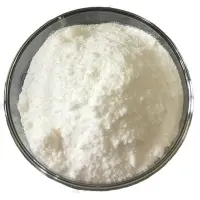-
Categories
-
Pharmaceutical Intermediates
-
Active Pharmaceutical Ingredients
-
Food Additives
- Industrial Coatings
- Agrochemicals
- Dyes and Pigments
- Surfactant
- Flavors and Fragrances
- Chemical Reagents
- Catalyst and Auxiliary
- Natural Products
- Inorganic Chemistry
-
Organic Chemistry
-
Biochemical Engineering
- Analytical Chemistry
-
Cosmetic Ingredient
- Water Treatment Chemical
-
Pharmaceutical Intermediates
Promotion
ECHEMI Mall
Wholesale
Weekly Price
Exhibition
News
-
Trade Service
What is a biological agent
What is a biological agentRefers to preparations produced or extracted from antibodies, enzymes, hormones or other biological sources
.
The development of biological agents is rapid.
immunity
The biological preparations currently on the market that are used in rheumatism immunity are:
Targets of action-TNFα: Etanercept (enaciprecept), Infiximab (infliximab), Adalimumab (Adalimumab), Golimumab (Golimumab), Certolizumab ( Certuzumab)
.
Targets of action-IL-1: Anakinra (Ambiol), Rilonacept (rilocept), IL-6: Toclizumab (tocilizumab)
Target of action-B cells: Belimumab, Rituximab, Ofatumumab, Ocerelizumab
Target of action-T cells: Abatacept (Abatacept)
Classification and characteristics of biological agents
Classification and characteristics of biological agentsTumor Necrosis Factor Inhibitors:
1) Etanercept (Etanercept, Yisaipu, Enli): Dimer fusion protein : human TNF receptor is connected to the FC part of human IgG1, which binds to soluble and cell model TNF, preventing TNF from TNF on the cell surface Receptor binding
.
2) Inflixi (like gram): anti-TNF mouse/human chimeric monoclonal antibody, which binds to soluble and cell model TNF and prevents TNF from binding to cell surface receptors
.
3) Adamu (Humira): Human monoclonal antibody against TNF , which binds to soluble and cell model TNF and prevents TNF from binding to cell surface receptors
.
Clinical application of biological agents
Clinical application of biological agents1.
Mandatory spondylitis
Mandatory spondylitis 1.
Mandatory spondylitis
Recommended usage:
Inacipr: 25mg, twice a week, subcutaneously
Inflixide: 5mg/kg, instilled every 2, 4, 8 weeks after the first infusion, and every 8 weeks thereafter, intravenous infusion, dissolved in 250-500mlNS, infusion time is not less than 2 Hour Adalimumab: 40mg, once every 2 weeks, subcutaneous injection
2.
Clinical application:
A large number of clinical trials at home and abroad have confirmed that TNF inhibitors have a good effect on AS, not only can better control the inflammation, but also have long-term use.
Can delay or even improve bone destruction
.
3.
Clinical indications:
①Patients poorly treated with traditional medicines;
②Those who cannot tolerate traditional medicines;
③Patients with joint damage (especially hip joint);
④Severe active inflammation, such as severe peripheral joint swelling and pain, bright
Obvious lumbosacral stiffness, etc.
, and economic conditions permit
.
Note: Due to consideration of patients' affordability and drug side effects, we have improved the usage of TNF inhibitors: reduce the dosage and use density
.
For example: Inacipu is changed to once a week, or even once every two weeks, the longest one is once a month
.
Cut the dose of inflixil in some patients by half
.
Rheumatoid Arthritis
Rheumatoid arthritis rheumatoid arthritis(1) Recommended usage
Inacipr: 25 mg twice a week, subcutaneously
Inflixil: 3 mg/kg, instilled every 2, 4, 8 weeks after the first infusion, and once every 8 weeks thereafter, intravenous infusion, dissolved in 250-500 ml NS, the infusion time is not Less than 2 hours
.
Adalimumab: 40 mg, once every 2 weeks, subcutaneously
(2) Clinical application
A large number of clinical trials and use have confirmed that TNF inhibitors have a good effect on RA, not only can better control the performance of joint inflammation, but also long-term use (over 6 months) may delay or even improve bone destruction
.
2.
Indications:
① Those whose condition cannot be controlled by traditional combination therapy with MTX as the mainstay
.
②The disease progresses rapidly, with bone destruction in the early stage
.
③Patients with high disease activity and risk factors for developing progressive RA:
a) The number of joints involved during disease activity>20
b) Rheumatoid nodules, especially those with multiple numbers
c) High titer RF or anti-CCP antibody (+)
d) Continuous increase in erythrocyte sedimentation rate, CRP and blood eosinophils
e) Imaging bone erosion manifestations
④ Early active patients who can afford it
.
Note: ① TNF inhibitors must be combined with immunosuppressive agents such as MTX to better control the RA condition, which is different from AS
.
②For Inflix, combined with MTX can also reduce the production of human anti-chimera antibodies and reduce drug resistance
.
Psoriatic arthritis
Psoriatic Arthritis Psoriatic Arthritis (1) Traditional treatment is mainly based on a larger dose of MTX (15-25mg/w), which has larger side effects
.
(2) TNF inhibitors not only have a significant effect on arthritis, but also have a good effect on skin rash and ophthalmia
.
Reactive arthritis and undifferentiated spondyloarthropathy
(1) Average reactive arthritis and undifferentiated spondyloarthropathy used to control NSAID, small doses of hormones, MTX and the like
.
(2) TNF inhibitors can be used for refractory cases, which can not only control the condition well, but also reduce or shorten the dose and treatment course of hormones and MTX
.
(3) In reactive arthritis and undifferentiated spondyloarthropathies, inaercept seems to be more suitable than inflix
.
Contraindications and countermeasures of using TNF inhibitors
Contraindications and countermeasures of using TNF inhibitors(1) During active infection
InfectCountermeasures: TNF inhibitors are not suitable for severe infections, and can be used after the infection is cured; it is not recommended for patients with hepatitis B, but there is no evidence that the use of hepatitis C patients will increase hepatitis and viral load; for tuberculosis, first respond to all patients before treatment For TB screening , patients with active tuberculosis should be adequately treated; patients who have had tumors should be used with caution.
If the tumor has not recurred in 10 years, it is not a contraindication to TNF therapy, but it should be used with caution for those with precancerous lesions
.
(2) In the last 12 months, septic arthritis of the proper joint or sepsis of the artificial joint occurred
.
(3) Congestive heart failure grade 3 or 4 (NYHA standard)
Heart failureCountermeasures: Patients with grade 3-4 heart failure should not be treated with anti-TNF therapy, and patients with mild heart failure should be cautious
.
(4) Pregnant women or breastfeeding women
Although animal experiments have not found that anti-TNF therapy has the risk of teratogenicity or miscarriage, it is still unclear for humans
.
Those who are receiving TNF treatment should pay attention to contraception or breastfeeding, and those who are receiving TNF treatment should stop treatment if they become pregnant
(5) A clear history of demyelination
People with a clear or suspicious history of demyelinating disease and a clear family history of demyelinating disease should avoid using it; if demyelinating disease manifestations occur during treatment, anti-TNF therapy should be stopped and a neurologist should be asked for treatment
Leave a message here







